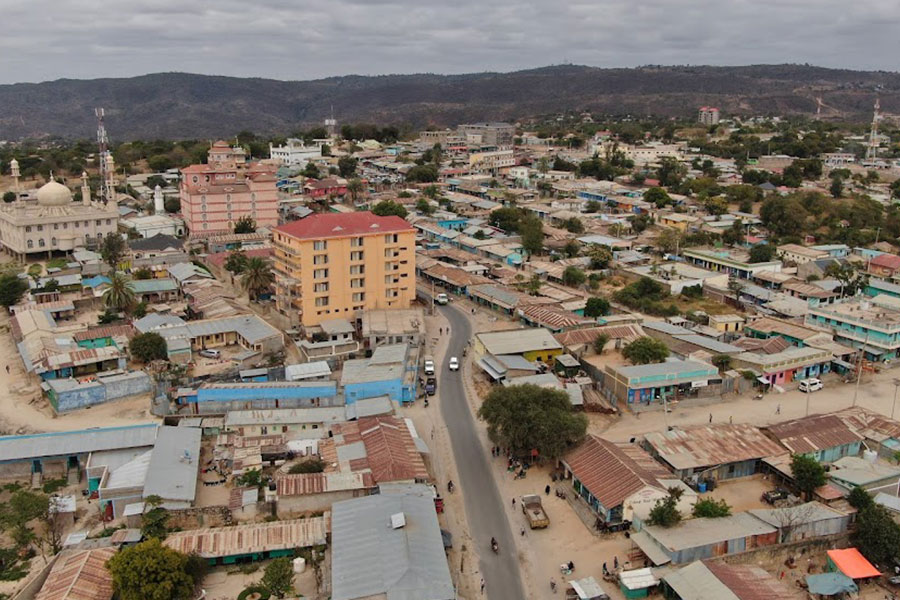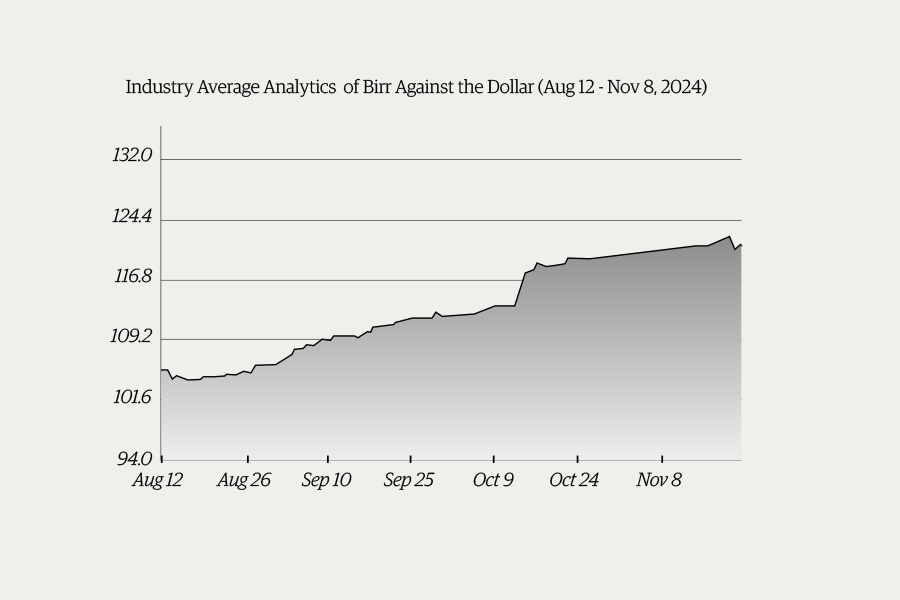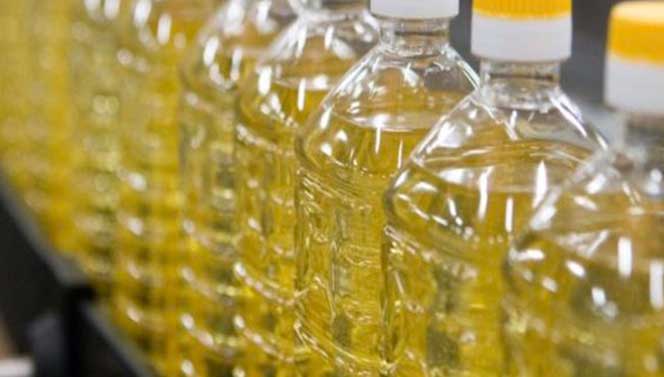
Radar | Aug 10,2025
Mekiya Ahmed, in her mid-thirties and a mother of one, returned to Ethiopia five years ago after the civil war broke out in Yemen. The homecoming was anything but easy. She spent nearly a year without a job in Addis Abeba.
As her efforts to find a decent-paying job proved futile, Mekiya took matters into her own hands. She decided to use her experience working as a housemaid in Sana'a to her advantage. She began to bake cakes at home using equipment already available at the house she shares with her sister near Chilot Adebabay, in Gulele District. The oven in the kitchen was a familiar sight to her as she was the one who had bought and shipped it from Yemen.
She converted other items in the house to fit her needs, including a scraper, rolling pin and pastry brush. Though Mekiya was determined and a little desperate, she faced an uphill climb in finding customers willing to pay for cakes baked at home.
“Initially, my connections weren't wide to attract enough customers,” she told Fortune.
However, Mekiya managed to build a loyal customer base through time, which enabled her to buy better baking tools. Three years ago, she bought a flour mixer and a new oven at the cost of 60,000 Br. The value of her inventory has grown, now worth around 100,000 Br.
“Demand picks up during wedding and graduation seasons as well as holidays,” she said. "Customers begin to place orders 10-day ahead."
Last September, Mekiya received close to two dozen orders in the week leading up to the Ethiopian New Year. The average cake she bakes weighs over three kilogrammes, on sale for between 350 Br and 550 Br a kilo. The price depends on the ingredients she uses. Chocolate cakes embossed with unique designs, customers' favourite, are the most expensive.
“I raise my child with the money I earn from selling cakes,” she said.
However, during off-seasons, Mekiya depends on a small shop in front of her house to make a living by brewing traditional coffee.
Mekiya is by no means the only one who has resorted to confections to support her livelihood. The business of baking cakes and pastries at home has grown popular in recent years, with many in Addis Abeba preferring the home-baked goods to the sweets they find on the shelves of cafes and pastry shops.
Azeb Zerihun, who lives around the Bole Michael area with two siblings and her mother, got her business going after failing the national high school exams at 19. Though she started her entrepreneurial career with a small beauty salon, Azeb was forced to look for something else when that venture proved unprofitable. She began baking cakes at home in 2015. After seven years of hard work, her business is only growing in size.
"I received five orders last week,” Azeb told Fortune. “I expect more as the holiday approaches.”
One of Azeb's clients is Tomas Degu, 29. Six months ago, he had ordered a three-kilogramme cake as part of the festivities for his nephew's birthday. He has proven a loyal customer and placed another order for a two-kilogramme cake for the Christmas holiday.
“I prefer to order from Azeb because of the affordable prices,” he said. “The cakes also taste great."
Azeb sells a kilogramme of cake for 400 Br, but prices can rise to 600 Br for special orders with unique designs and decorations. However, the prices Mekiya and Azeb ask for are significantly cheaper than what customers pay at the many cafes and pastry shops in the capital.
Located in Piassa, Caramel Pastry is one of the better-known bakeries in the city. A kilo of cake there sells for 800 Br though – as with the home-baked confections – customers pay as much as 1,200 Br for a kilo of cake with all the embellishments. It seems the considerable cost has not discouraged Caramel's patrons.
Demand is growing despite the high prices, according to Meskerem Demeke, a confectioner at Caramel Pastry for the past three years. Caramel offers a wide variety of cakes and sweets and gives customers the option to bring in their own designs.
One such customer is Werqneh Girma, a father of two, who ordered a 1.5Kg cake in the shape of a Christmas tree last week. He paid 1,800 Br for his order, which was to be delivered on Christmas Day on January 7, 2022.
“Any cake with such beautiful designs is worth the price,” he said.
Though Werqneh is content with the price, cakes remain an indulgence far out of the reach of most Ethiopians. The high inflation rates over the past few years have meant that confections are inching even further away from the realm of affordability. According to a report from the Ethiopian Statistical Service, the year-on-year inflation rate in November reached 33pc while food inflation registered near 39pc. In September, food inflation clocked in at 42pc, the highest seen in a decade.
Nevertheless, the holiday season often comes with a boom in sales for cafes, bakeries and pastry shops in Addis Abeba. There are around 4,370 of these businesses across the capital, according to data obtained from the Ministry of Trade & Regional Integration. The figure stood at 3,200 two years ago.
Many, like Caramel Pastry, are enjoying the boost in income, but others have been left out of the frenzy.
Bethelhem Feleke, the owner of Cake City, a pastry shop located on Africa Avenue (Bole Road) in front of Alem Cinema, has seen demand stagnate, despite the holiday approaching.
“I expected it to pick up for the holiday,” she said. “Our prices are much lower than what's on offer elsewhere.”
Prices at Cake City are fixed at 900 Br for a kilogramme of cake.
Still, even with the comparatively lower prices, she will find it difficult to compete with home-based businesses such as Mekiya and Azeb. They have significantly lower overhead costs and do most of the work themselves. They have no intention of slowing down.
“My business is constantly improving as my customer base grows,” said Azeb.
A reason that leads customers like Werqneh, who opted to order a cake at Caramel Pastry, away from small, at-home bakeries, is concern over food safety. For hygiene conscious individuals, those baking at home are away from the gaze of the authorities for health inspection.
"I couldn't buy any food items from these places knowing the authorities don't regulate them," said Werqneh.
The risk is higher when it comes to foods such as cakes because it is children that consume them most of the time, according to Zubaid Ahmad, a nutrition expert and food consultant.
Mekiya argues that she takes all necessary precautions when baking her cakes at home. She covers her hair and hands and regularly cleans her equipment.
“That my customers always return to order more cakes is a testament to the safety of my products," she said.
PUBLISHED ON
Jan 07,2022 [ VOL
22 , NO
1132]

Radar | Aug 10,2025

Radar | Jun 24,2023

Fortune News | May 07,2022

Radar | Apr 01,2024

Radar | Jul 02,2022

Money Market Watch | Nov 24,2024

Featured | Sep 29,2024

Fortune News | Apr 30,2021

Fortune News | Nov 16,2019

Agenda | Apr 15,2023

Dec 22 , 2024 . By TIZITA SHEWAFERAW
Charged with transforming colossal state-owned enterprises into modern and competitiv...

Aug 18 , 2024 . By AKSAH ITALO
Although predictable Yonas Zerihun's job in the ride-hailing service is not immune to...

Jul 28 , 2024 . By TIZITA SHEWAFERAW
Unhabitual, perhaps too many, Samuel Gebreyohannes, 38, used to occasionally enjoy a couple of beers at breakfast. However, he recently swit...

Jul 13 , 2024 . By AKSAH ITALO
Investors who rely on tractors, trucks, and field vehicles for commuting, transporting commodities, and f...

Oct 4 , 2025
Eyob Tekalegn (PhD) had been in the Governor's chair for only weeks when, on Septembe...

Sep 27 , 2025
Four years into an experiment with “shock therapy” in education, the national moo...

Sep 20 , 2025
Getachew Reda's return to the national stage was always going to stir attention. Once...

Sep 13 , 2025
At its launch in Nairobi two years ago, the Africa Climate Summit was billed as the f...